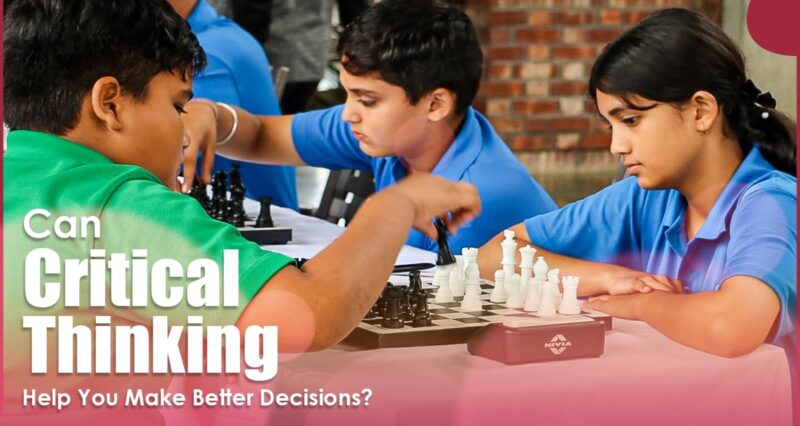The skill of critical thinking is considered one of the most important skills in life, as it helps individuals process a piece of information, assess the options available, and come to a conclusion. The skill of critical thinking can be important in many aspects, such as addressing real-world challenges faced in day-to-day activities or future planning. But then, can it really help you in the actual decision making process?
Thus, let us examine the role of critical thinking in decision-making and the benefits it has in sharpening the skill.
1. What is Critical Thinking?
Whenever we encounter information, it does not mean simply processing it, but encoding or storing it and retrieving it when required. More than this, we analyze, interpret and evaluate it to come up with reasoned conclusions. This entails:
- Observation: Acquiring appropriate information and finding its significant aspects.
- Analysis: Taking the information apart and looking at the relevance of each component.
- Reflection: Accepting the known; thinking about other possibilities. Consider the importance of the values held. This makes it easier to derive conclusions and avoid biases in a given viewpoint.
2. Why Critical Thinking is Vital for Decision-Making
Improved Problem-Solving Skills
In most cases, critical thinkers will not rush to solve a challenge at hand as they will first weigh the options available. This is known as tactical or strategic approaches towards critical thinking. Consequently, the solution is not emotional or based on unrealistic expectations.
Enhanced Objectivity
As they weigh the issues at hand, critical thinkers use several aspects and do not rely on the individual but rather their aspects. Hence this type of objectivity guarantees that decision-making is sound and reasonable.
3. Ways of Executing Critical Thinking in the Process of Decision-Making
Step 1: Clearly Define the Issue
Identifying the central question to be resolved is the baseline for every approach to making decisions. Ask yourself, which aspects need to be resolved and for what reasons.
Step 2: Accumulate Needed Data
Accumulate all relevant materials including, but not limited to, opinions, statistics and facts. More of it is better for making sound judgments.
Step 3: Assess the Possible Choices
Look at the benefits and drawbacks of each possible course of action. Carefully consider your options using reasoned thought and justification.
Step 4: Arrive at a Decision
Informed by your earlier assessment, make a choice that you consider the most appropriate in view of your objectives and principles.
Step 5: Review the Decision
Having made a decision and acted on it, look back at the consequences in order to learn lessons that would help enhance the decision-making process in the future.
4. Benefits of Critical Thinking in Everyday Life
Improved Communication
The judicious use of critical thinking will help you in expressing your opinions or ideas in such a manner that it heightens group participation and understanding.
Effective Time Management
A critical thinker is capable of logically sequencing work assignments so as to save time and complete more tasks within the same time frame.
Working Under Pressure
The process of critical thinking provides individuals with the necessary skills to keep calm and collected in stressful events hence making reasonable decisions even with pressure.
5. Critical Thinking Skills Development Strategies
- Seek Clarifications: Do not just assume any information is right; rather understand the reason and explain the process.
- Participate In Debates: Interaction with other people challenges one’s way of thinking which embraces new ideas that otherwise would not have been.
- Practice Mindfulness: Assessment of one’s own thoughts and behaviors in a periodic way improves the individual’s ability to think critically.
- Read and Learn: Reading about different topics and viewpoints enhances one’s ability to think analytically.
Conclusion
Critical thinking is one of those transformative skills that empower people to make thoughtful decisions regarding all walks of life. It not only promotes the making of decisions but also the making of rationally based, untainted and logical conclusions devoid of any biases, hence making sure that the decisions you make are well-informed and most importantly effective.
Kasiga School aims to enhance the critical thinking skills of children in order to facilitate the handling of practical issues in the future. We welcome students who have a passion for academics and those who are curious so that we can help create, not only scholarly beings but individuals with outstanding living skills as well.

